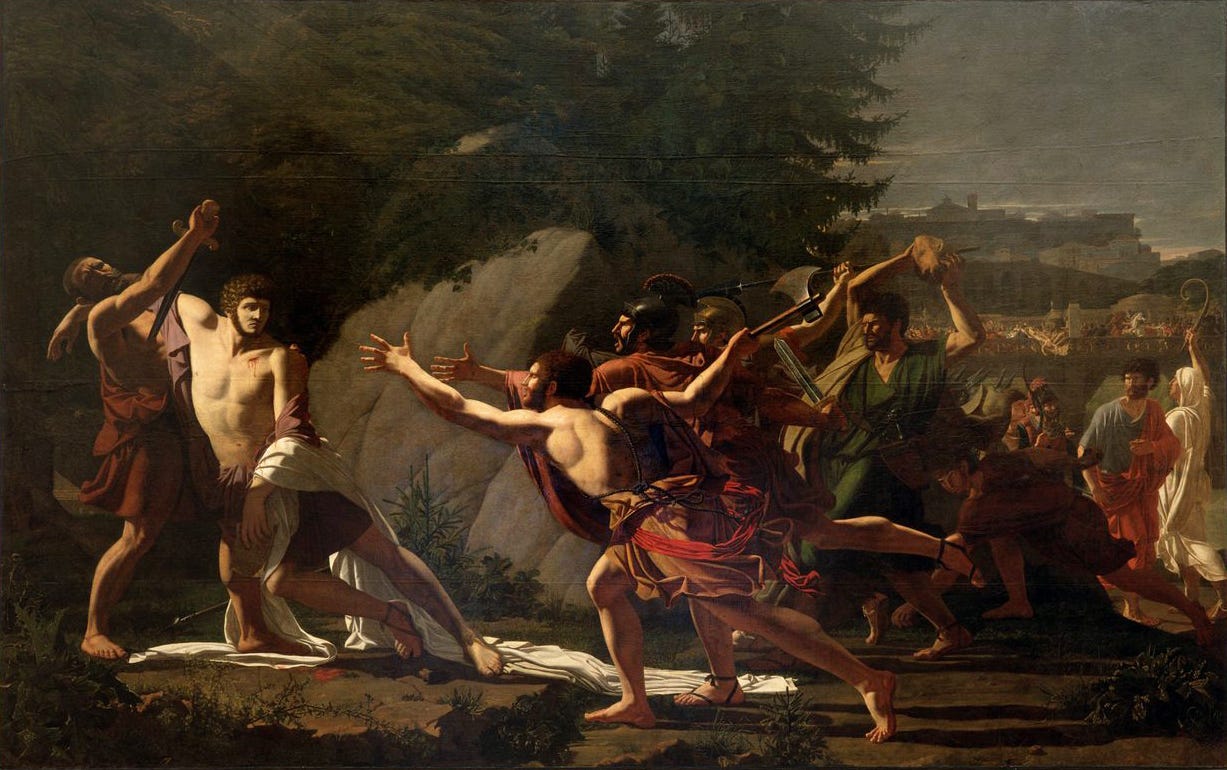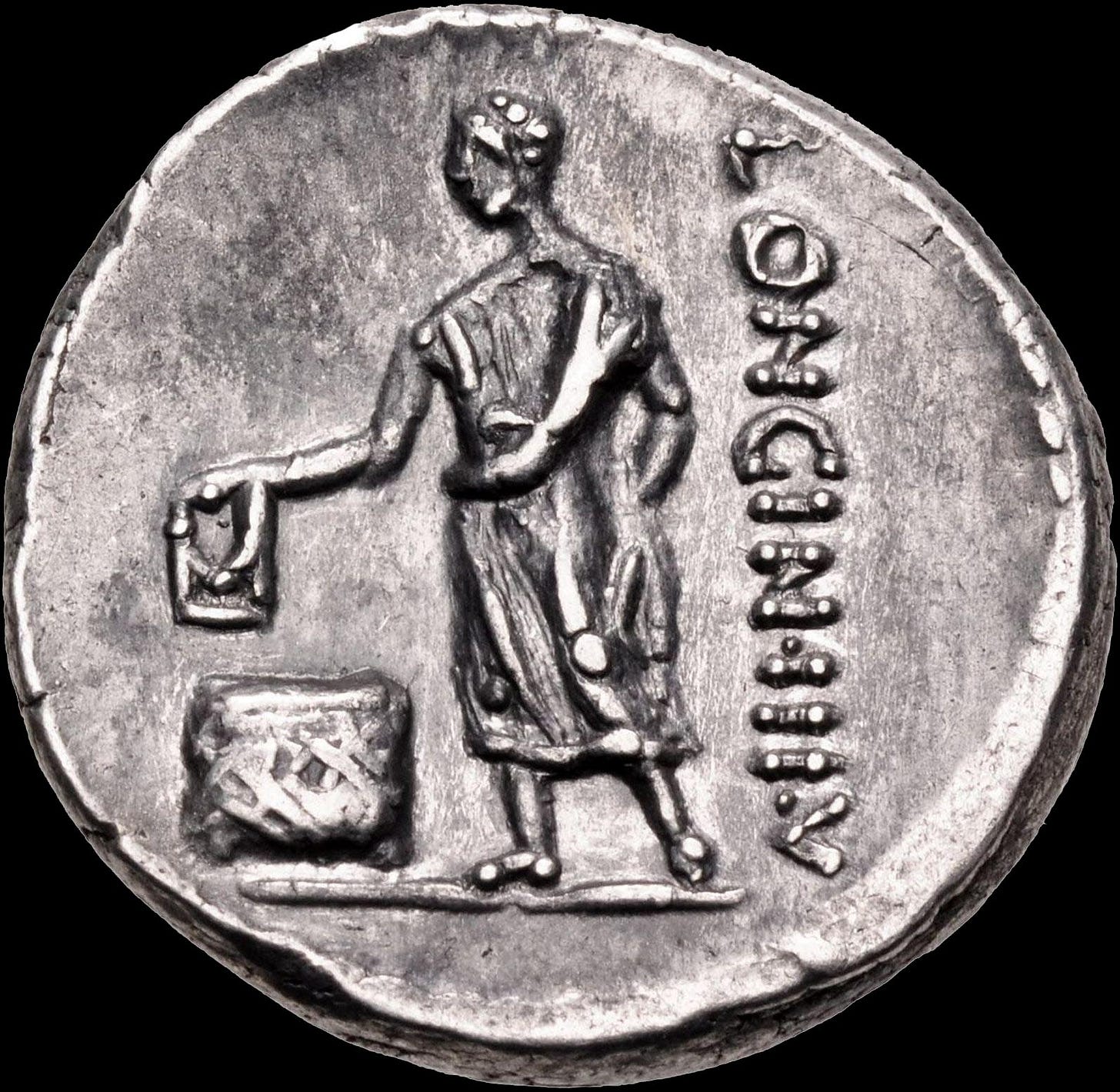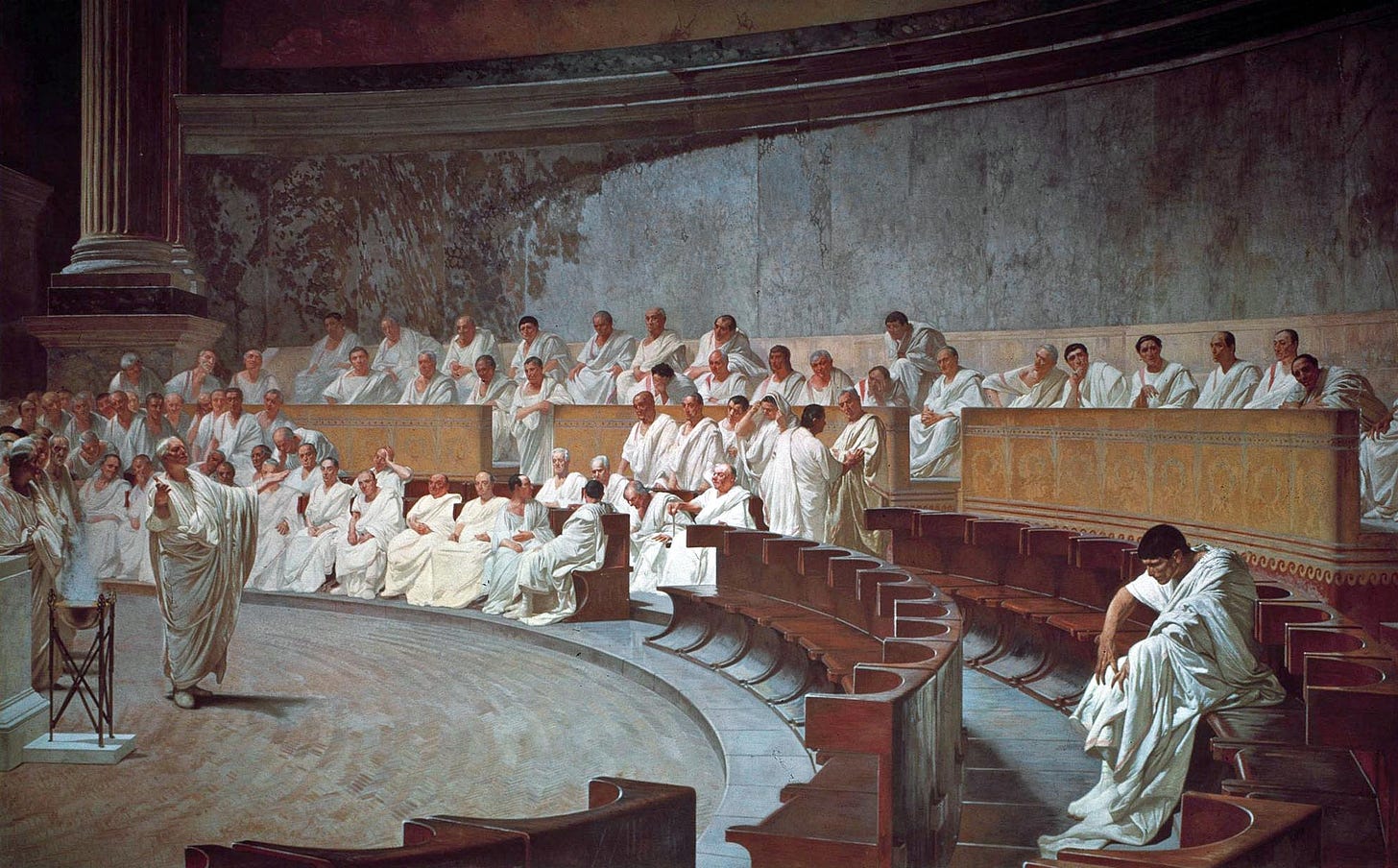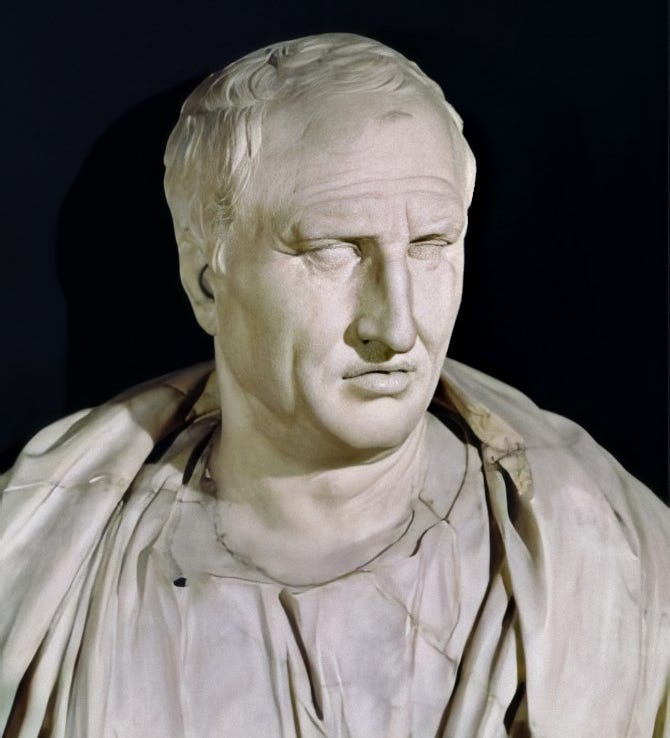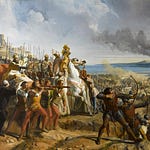In the last days of 63 BC, Marcus Tullius Cicero, one of the most famous statesmen in history, saved Rome from a terrible plot that sought the overthrow of the Republic. Defeating the nefarious intrigues of Catiline, Cicero was hailed as the ‘father of his country’. Or so the story goes.
The Conspiracy of Catiline has always occupied a strange position in Roman history. Typically accepted as Cicero’s ‘heroic moment’, the Conspiracy is nevertheless generally glossed over. As a result, Cicero’s own words are taken at face value, and Catiline therefore written off as a cartoon villain.
Taking a closer look, however, reveals far uglier realities about the Roman Republic, what it really was, and why, ultimately, it would collapse soon after. Central to that uglier reality is Cicero himself.
While his actions in 63 BC earned him the praise of thinkers and statesmen for centuries to come, there is ample evidence that ordinary Romans saw things rather differently.
Today, we unmask the greatest plot against the Republic, and look at why the Conspiracy, far from being the making of Cicero, was the breaking of his legacy, and the Roman Republic itself…
The Corruption of the Republic
Timestamp: 00:01:36
“But when our country had grown great through toil and the practice of justice, when great kings had been vanquished in war, savage tribes and mighty peoples subdued by force of arms, when Carthage, the rival of Rome’s sway, had perished root and branch, and all seas and lands were open, then Fortune began to grow cruel and to bring confusion into all our affairs. Those who had found it easy to bear hardship and dangers, anxiety and adversity, found leisure and wealth, desirable under other circumstances, a burden and a curse. Hence the lust for money first, then for power, grew upon them; these were, I may say, the root of all evils. For avarice destroyed honour, integrity, and all other noble qualities; taught in their place insolence, cruelty, to neglect the gods, to set a price on everything…”
Sallust, The War With Catiline, 10
It was acknowledged by multiple observers even in Antiquity that something fundamental and sinister had changed in the character of the Roman Republic after 146 BC. That with the conquest of Carthage and Greece, something was unleashed in the elite classes of the Eternal City.
For many long centuries, the bedrock of Roman civilisation, and indeed the economy, had been the farmer. Yet with the Mediterranean now subject to the Republic, the oligarchy of Rome gained a taste for commerce and luxury, and a disdain for the old ways. With Italy flooded with cheap imports of grain, and cheap labour in the form of the untold thousands of slaves brought in from Africa and Asia, the Roman farmer rapidly found himself priced out of his own lands.
The new dispossessed class of Italy flocked to the cities out of desperation, and their plight would drive the Republic into the crisis that would ultimately precipitate its collapse…
The Dirty Election
Timestamp: 00:23:25
“And Rome was most dangerously disposed towards change on account of the irregularity in the distribution of property, since men of the highest reputation and spirit had beggared themselves on shows, feasts, pursuit of office, and buildings, and riches had streamed into the coffers of low-born and mean men, so that matters needed only a slight impulse to disturb them, and it was in the power of any bold man to overthrow the commonwealth, which of itself was in a diseased condition…”
Plutarch, Life of Cicero, 10.5
After decades of turmoil in Rome and Italy, which raised the stakes of politics to critical levels, normalising both electoral fraud and political violence, in 64 BC the Eternal City readied for a new ballot.
Standing for the consulship — the supreme regular office of the Republic — were several candidates. Chief among them, however, were two very different men. The lawyer Marcus Tullius Cicero, defender of the institutions, and Lucius Sergius Catilina, who allied himself to cause of the urban poor and dispossessed aristocracy.
With the city oligarchs swinging their support behind Cicero, the orator turned to character assassination, smearing his opponent with almost every taboo known to the Roman people. It worked, and Catiline was shut out of office.
Yet in doing so, Cicero had made enemies, and would make more by his first acts in office…
The Awkward Revolution
Timestamp: 00:43:00
“For in spite of the two decrees of the senate not one man of all that great number was led by the promised reward to betray the conspiracy, and not a single one deserted Catiline’s camp; such was the potency of the malady which like a plague had infected the minds of many of our countrymen. This insanity was not confined to those who were implicated in the plot, but the whole body of the commons through desire for change favoured the designs of Catiline…”
Sallust, The War Against Catiline, 36-37
Behind the apparently rosy façade of the Ciceronian consulship, storm clouds were gathering over Italy.
With land reform and debt relief legislation having both been abruptly quashed, Catiline would find widespread sympathy that extended far beyond “worthless citizens”, as Cicero called them (Cicero, Fourth Catilinarian, IV). Indeed, so much so that the Senate would be most unnerved when nobody accepted the substantial financial reward it offered for any information on the growing ‘conspiracy’ against the state.
Thus would Cicero find himself in the awkward position of having to shut down a suspected revolution that the Roman people themselves were apparently amenable to, demanding credit for doing so along the way.
When armed uprisings began in Italy, however, Rome prepared for unprecedented strife, as the Senate passed its most infamous act, the senatus consultum ultimum - the ‘final decree of the Senate’…
The Saviour of the Republic?
Timestamp: 01:19:00
“Toward Caesar, accordingly, the masses were well disposed, for the reasons given, but they were angry at Cicero for the death of the citizens, and displayed their enmity in many ways…”
Cassius Dio, Roman History, XXVII.38
With the conspirators in Rome arrested, the conspiracy, it seemed, was definitively foiled.
Yet what happened next would render this victory entirely hollow, severely tarnish the reputation of Cicero himself, and inflict a grave blow to the remaining legitimacy of the Roman Republic.
Far from ‘saving the Republic’, the outcome of the Catilinarian Conspiracy would condemn Rome to the worst anarchy and street violence it had ever seen, and the collapse of faith in even its most ancient institutions. All over that most fundamental of questions on the nature of governance — when is the state justified in condemning its own citizens to death?
‘Ordinary business’ would never return. Less than fourteen years separated the consulship of Cicero from Caesar’s crossing of the Rubicon. Soon after, Cicero himself would perish to the same arbitrary tyranny he had by his own actions helped to legitimise.
The career of Marcus Tullius Cicero, therefore, is a powerful warning of how easily you can destroy your own legacy…
A preview of this video is free for all readers of INVICTUS. To gain access to the full video (plus our entire backlog of over 130 articles, videos, and podcasts) click below to upgrade your membership:


